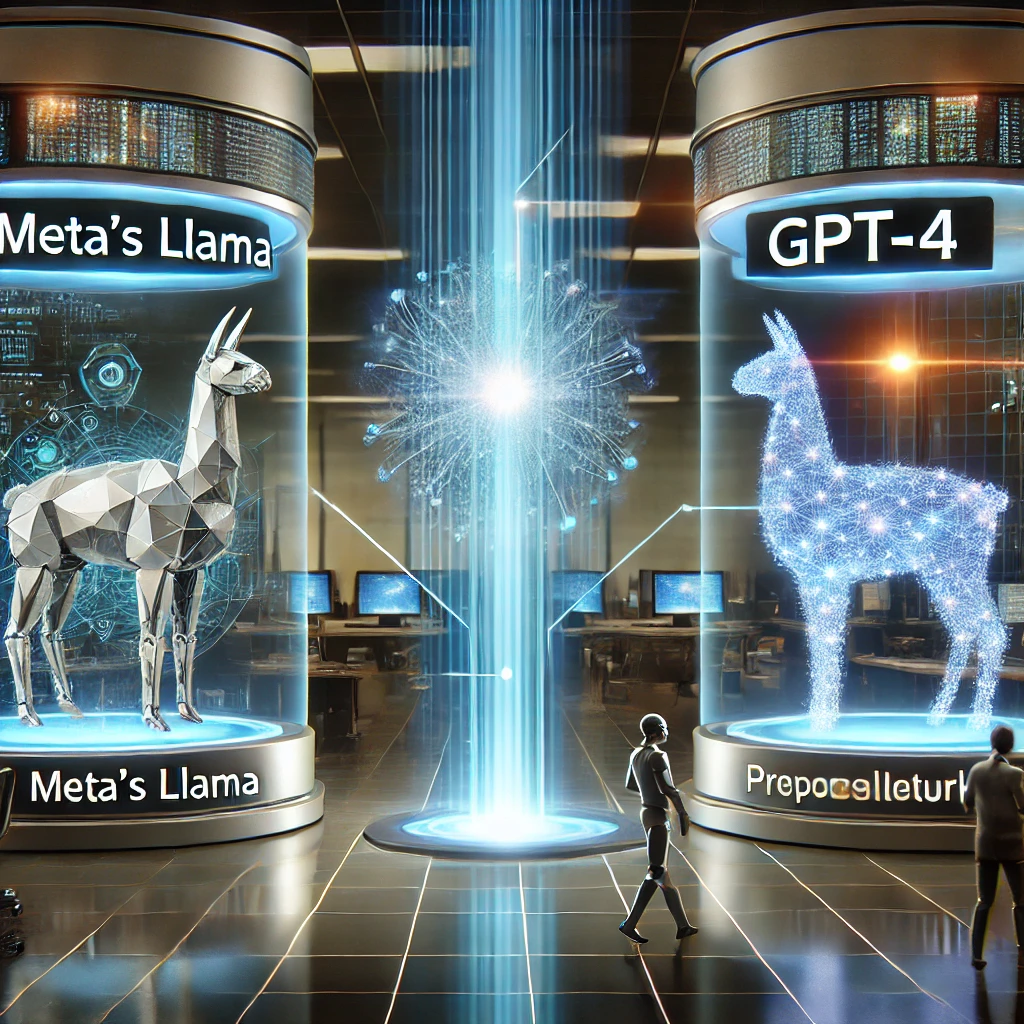While Meta promotes its Llama AI model as a trailblazer in generative AI, the company has quietly integrated OpenAI’s GPT-4 into its operations to address specific internal needs and philanthropic projects. This hybrid approach reflects both the strengths and limitations of Meta’s ambitious AI strategy.

Meta’s Dual AI Strategy
Mark Zuckerberg has publicly positioned Llama as a frontrunner in the AI landscape, competing head-to-head with OpenAI and Google. However, Meta’s internal tools reveal a more nuanced picture. The company’s AI-powered coding assistant, Metamate, relies on both Llama and GPT-4, dynamically switching between the two based on the complexity of the task, according to anonymous employees cited by The Fortune.
Operational since early 2024, Metamate assists developers and employees with coding, drawing comparisons to tools like Microsoft’s GitHub Copilot. While effective for simpler tasks, the tool struggles with complex engineering work, leading one source to liken its performance to that of “a skilled intern.”
Despite Zuckerberg’s claims that Llama is competitive with the most advanced AI models, Metamate’s dependency on GPT-4 highlights the practical challenges of creating a universally adaptable generative AI.
Reconciling Ambition with Reality
Llama’s open-source framework has been a cornerstone of Meta’s AI vision, with Zuckerberg touting its capabilities as industry-leading and predicting it would outpace competitors by next year. Yet, GPT-4’s integration into critical Meta tools underscores that Llama still has room to grow, particularly in handling diverse use cases and delivering robust performance across all scenarios.
Abhivyakti Sengar, Senior Analyst at Everest Group, noted that while Llama represents significant progress in open-source AI, Meta’s reliance on GPT-4 illustrates the persistent advantages of proprietary models in certain high-stakes applications.
A Pragmatic Hybrid Approach
Meta’s adoption of a dual-model approach demonstrates the company’s adaptability in a rapidly evolving AI landscape. By leveraging the strengths of both Llama and GPT-4, Meta ensures it can meet the diverse needs of its developers and end-users. However, this strategy also raises questions about the company’s ability to establish Llama as a dominant force in generative AI.
Vaibhav Bansal, Vice President at Everest Group, emphasized the importance of pragmatism in the AI race. “The smartest leaders are those who set aside ego and leverage the strengths of multiple models,” he said, highlighting how each AI excels in different areas such as reasoning, creativity, and efficiency.
Extending AI Beyond Internal Use
Meta’s hybrid AI approach extends beyond its internal operations. The Chan Zuckerberg Initiative (CZI), the philanthropic arm of Meta’s leadership, is utilizing OpenAI’s ChatGPT for an educational AI project. By customizing ChatGPT to suit its needs, CZI exemplifies Meta’s broader strategy of combining external and internal resources.
This collaboration is further underscored by OpenAI CEO Sam Altman’s recent appointment to CZI’s AI advisory board, signaling a deepening partnership between Meta and OpenAI.
The Future of AI: Collaboration Over Competition
Meta’s reliance on GPT-4 serves as a reminder of the complexities in staying competitive in the AI sector. While Llama remains central to its generative AI ambitions, the company’s willingness to use external tools reflects the challenges of achieving dominance with a single model.
As Sengar aptly put it, “No single model excels in all areas. The future of generative AI lies in hybrid approaches that integrate the best capabilities from various solutions.”
In the race to lead the AI revolution, Meta’s journey with Llama and GPT-4 highlights the balance between ambition and practicality. The quiet integration of external support into its strategy illustrates the importance of flexibility and collaboration in navigating the competitive AI landscape.